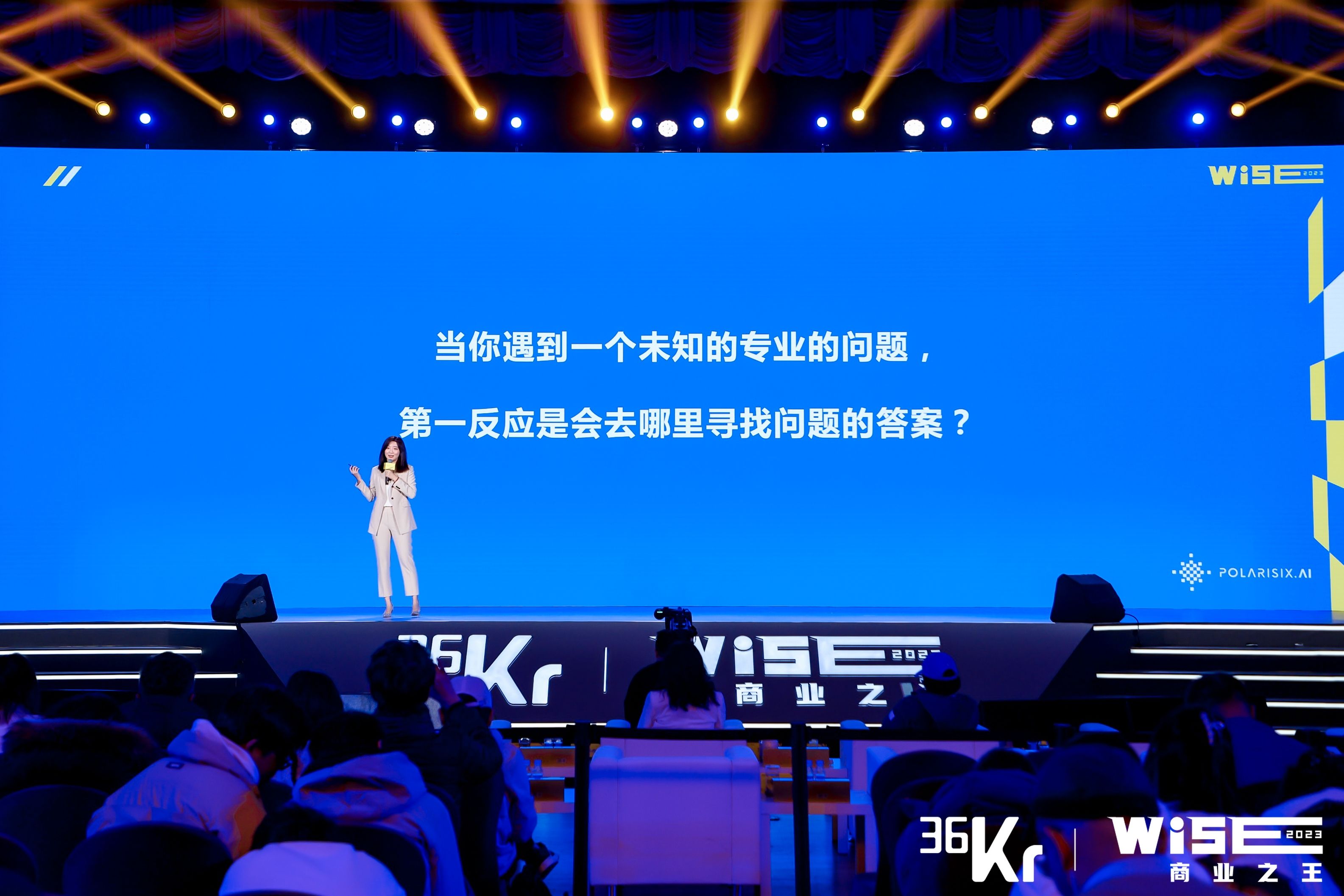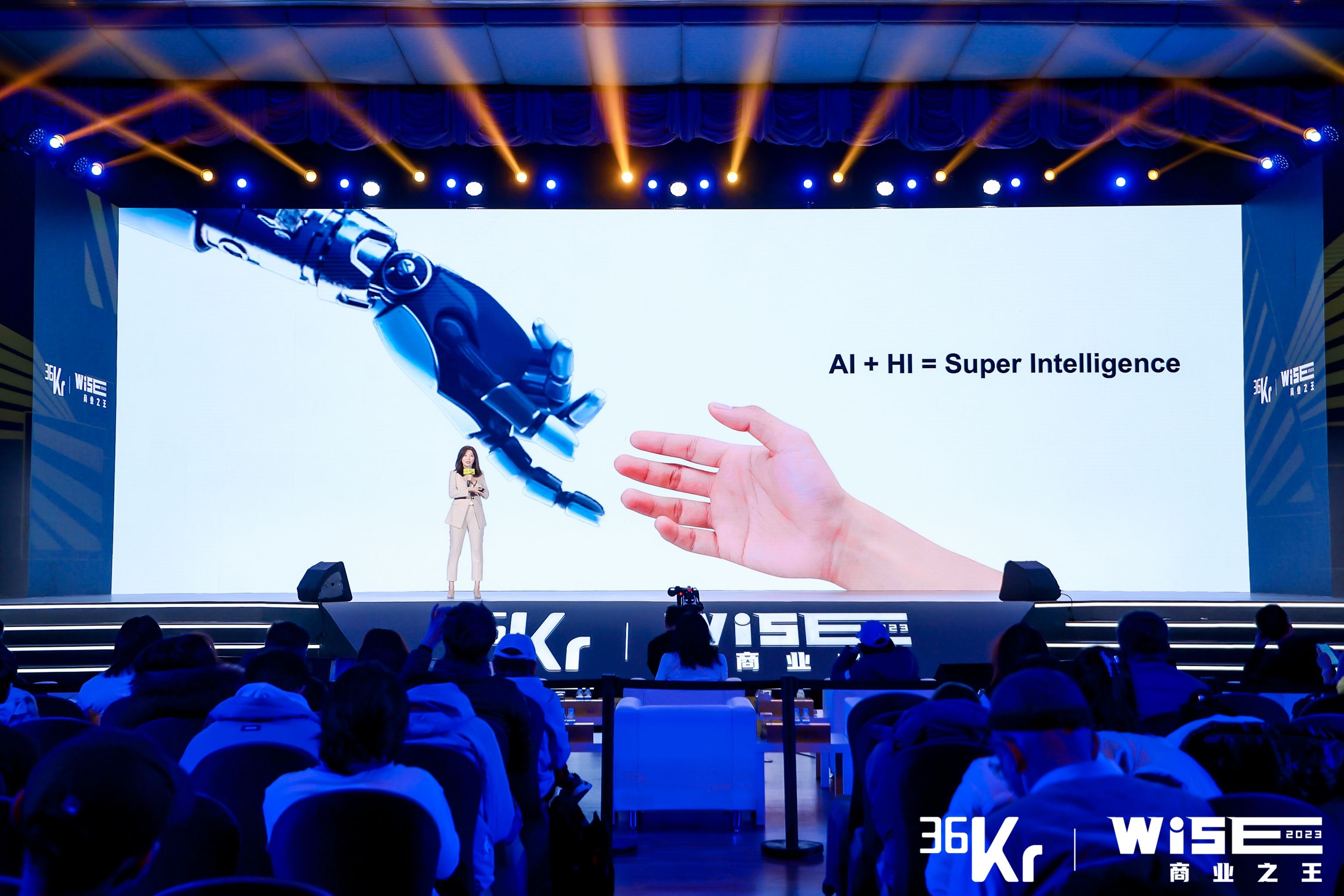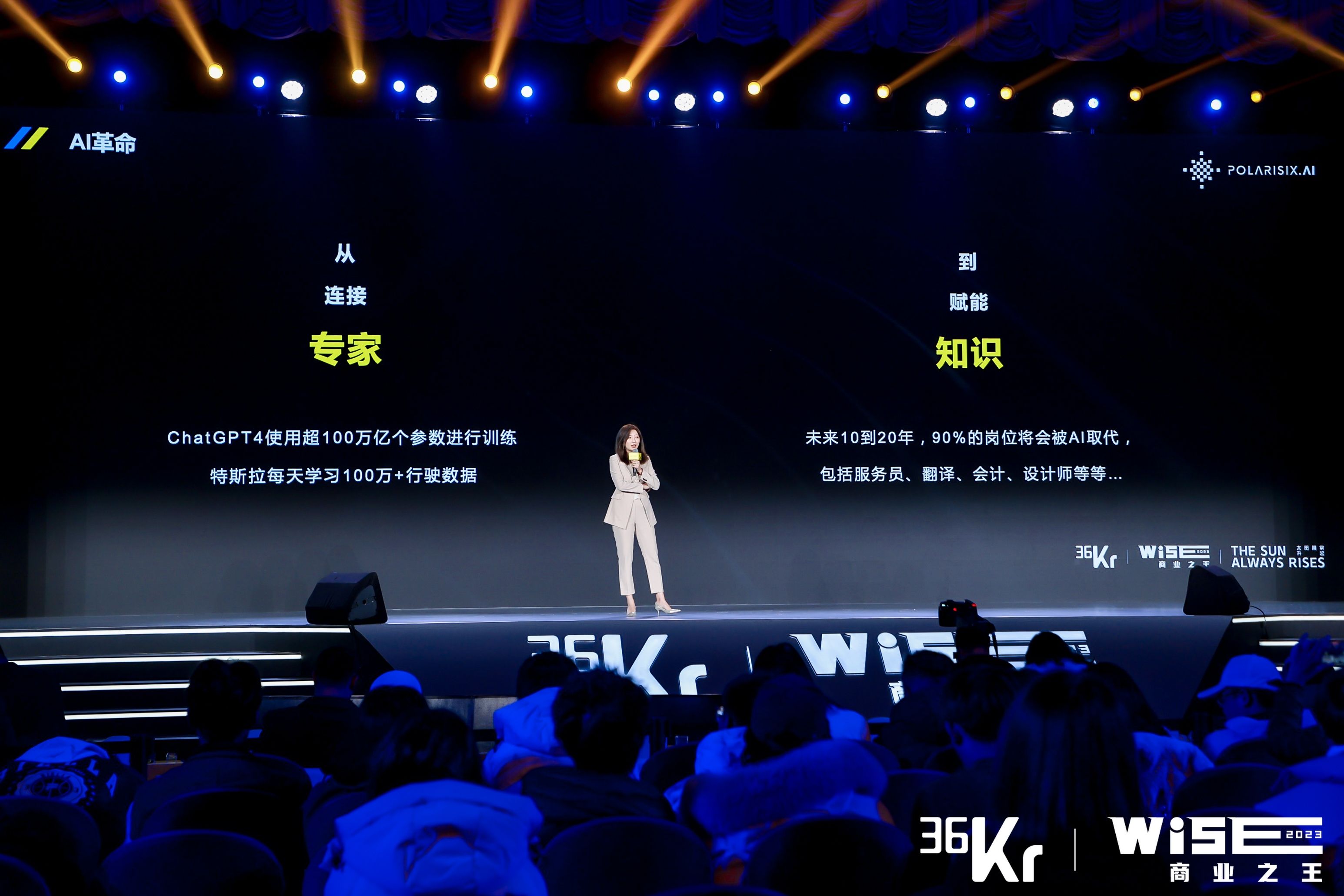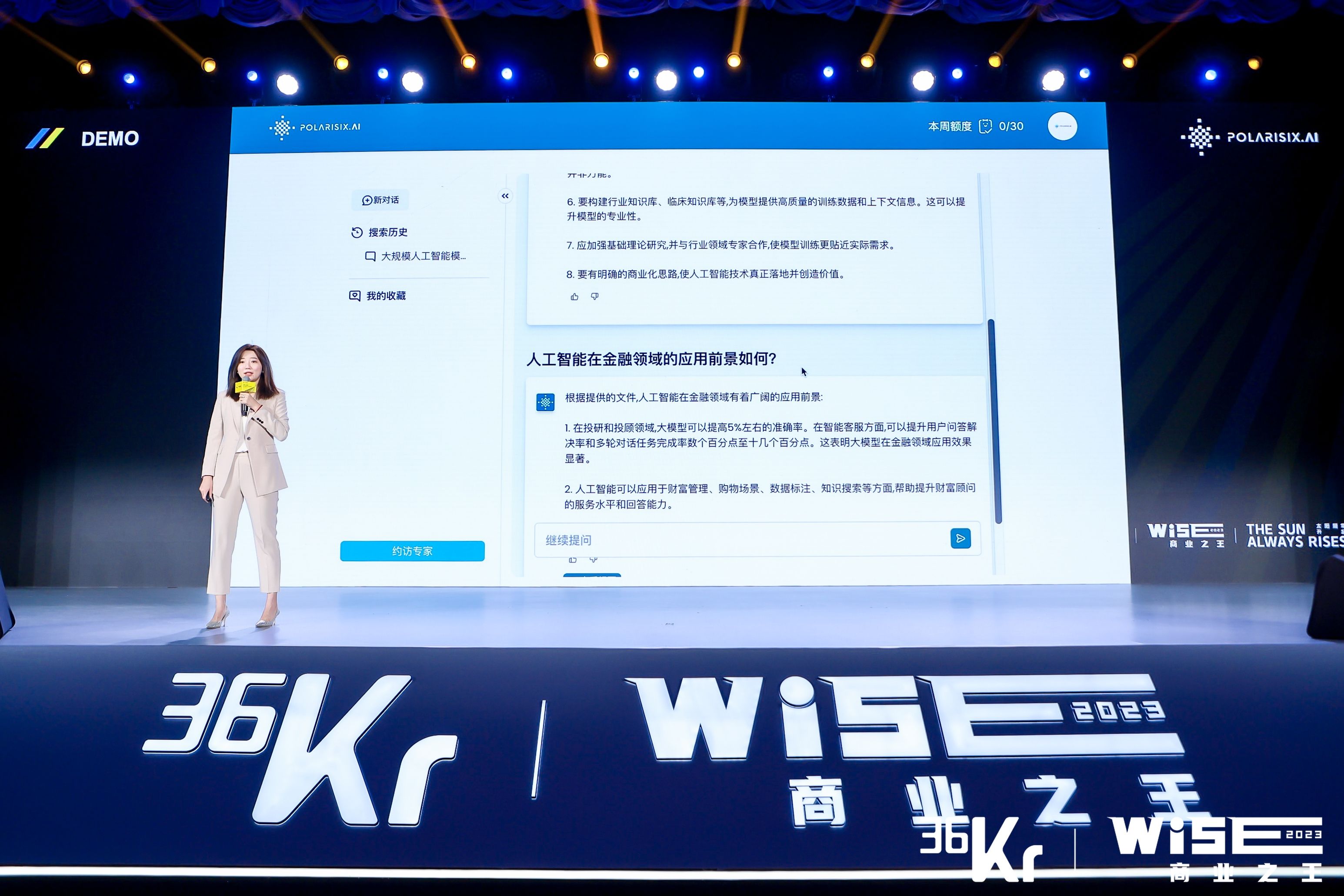Wendao AI Co-founder Zhu Yueying: AI Evolution, Knowledge Transformation
-

The essence of information is to eliminate uncertainty.
Although Shannon, the founder of information theory, proposed the discussion on the essence of information as early as 1948, it was not until the 1980s that information was recognized as an independent resource that could be utilized.
In the digital age of information explosion, accessing information has indeed become easier, but retrieving the key information individuals need has almost become a discipline and a business.
Web1.0 search engines and web portals like Yahoo, Google, and Baidu served as gateways to the internet for countless users, giving rise to tech giants that endure today. The transition to Web2.0 and mobile internet brought forth community platforms focused on niche content sharing, spawning commercial successes like Instagram and Xiaohongshu.
The internet's disruptive integration into daily life has fundamentally altered human communication across time and space while transforming information access. The interaction between information and individuals has shifted from passive reception to active engagement. Paradoxically, despite widespread information dissemination, access barriers have amplified information disparities rather than narrowing them. The specialized knowledge residing in experts' minds has become a crucial factor in contemporary business competition.
Information that should reduce uncertainty instead creates new uncertainties due to obscured retrieval methods. This phenomenon is particularly evident in Business Intelligence (BI). Enterprises recognizing the strategic value of real-time data are adopting advanced productivity tools fueled by data-driven insights.
According to DataHorizzon Research, the BI market was valued at $28.1 billion in 2022 and is projected to reach $55.5 billion by 2032, growing at a 7.2% CAGR. AI advancements are revolutionizing information retrieval patterns. While previous internet waves provided interactive tools, emerging technologies like large language models offer novel solutions for human information acquisition.
Recently, at the 36Kr 2023 WISE Business Summit, Zhu Yueying, co-founder and CMO of Wendao AI, showcased the potential of AI in empowering commercial information retrieval from an application-level perspective. She later participated in an exclusive interview with 36Kr's Super Viewpoint, elaborating on different approaches to human-information interaction in the AI era and the commercial practices Wendao AI is currently undertaking.
As an AI-powered commercial information retrieval product, Wendao AI is built on a foundation of exclusive expert interviews and meeting minutes, providing data nourishment for large-scale models and other technologies. This enables a new experience in professional information retrieval through search interfaces and conversational interactions. Currently, it can cover information acquisition and retrieval in various professional fields such as finance, consumer goods, and pharmaceuticals.
In her view, AI will ultimately change the world, and businesses and individuals who can adapt and collaborate first will always get a glimpse of the future. A consensus is that most application products, including Wendao AI, still primarily serve as tools. She also looks forward to the arrival of AGI (Artificial General Intelligence) technology, which would transform Wendao AI into a true 'Super Intelligence.'

The following is an interview transcript with Zhu Yueying, Co-founder & CMO of WenDao AI, edited by 36Kr:
36Kr: Many people still don't seem to understand information consulting. What should its definition be in the business field?
Zhu Yueying: Conceptually, it can be explained from both quantitative and qualitative perspectives. The general public's understanding of information consulting leans more towards the quantitative side. For example, when a company hires a consulting firm to conduct market research, they use methods like questionnaires to gather information on aspects such as market size, scale, and audience for a particular field. The final output is mostly in the form of white papers or industry reports.
Qualitative information consulting is more targeted in nature. It involves inviting specific individuals for in-depth, vertical discussions, interviews, or meetings. The format could be one-on-one or one-to-many, but the scale typically doesn't reach the academic level known as 'Focus Group.'
The commercial market for quantitative consulting is relatively mature and widespread, while the qualitative commercial market is divided into two parts. One part consists of general needs, mostly handled by traditional PR companies and media enterprises; the other part involves expert networks with higher verticality and professionalism, which is also a relatively mature media form internationally.
36Kr: What is the current state of digitalization in the entire industry? And when did you and your team realize that AI technology would bring significant changes to the information consulting industry?
Zhu Yueying: Let's look at it from two perspectives. In terms of tools, the industry's digitization is keeping pace with the times. Whether it's online meetings or real-time speech-to-text, these cutting-edge digital tools are being utilized. However, from an industry-wide perspective, digitization is still far from sufficient. For example, the vast amounts of accumulated information and data can only be 'stored' and simply 'searched,' which represents a very inefficient form of interaction.
Like most people exploring the AI field, the efficiency revolution brought by AIGC technology is evident. There's a consensus within the team that AI technology can optimize a significant amount of mechanical labor and enable intelligent delivery, which is a crucial supplement in the user interaction chain of the information consulting field. This means that previously accumulated data can be activated and reused, and valuable professional knowledge won't remain locked in experts' minds or computer documents but can be seen and used by more people.
36Kr: Wendao AI has divided knowledge search into three eras. What considerations led to this? In Wendao AI's view, what will knowledge acquisition look like in the AI era?
Zhu Yueying: The three eras we consider are evaluated from two different dimensions: the medium and the interaction between hardware and software.
-
1.0 Era. Public information primarily relied on search engines like Baidu, enabling users to quickly access, search, and filter vast amounts of online information. However, this depended on users' active search capabilities and their judgment of information validity. For industry-specific knowledge, people tended to use professional Q&A platforms like Zhihu.
-
2.0 Era. The retrieval of public information shifted from search engines to mobile terminal platforms like Xiaohongshu, which focus on individual experiences. This platform combines social networking and content sharing, offering richer and more diverse information and user experiences. The content source gradually shifted from publicly available online materials to personal experience sharing. Meanwhile, the need for professional and precise retrieval became the foundation for the growth of vertical platforms like Win.d (Wind Information).
-
3.0 Era. The emergence of large AI models has completely transformed the way information is obtained. These models can provide instant, customized information and respond to user queries in a more interactive manner. For industry-specific professional knowledge, we believe that only by combining AI technology with expert insights can we provide professional users with in-depth and efficient analysis. This is precisely the original intention behind our team's creation of WenDao AI.
From the perspective of hardware, there has been a shift from PCs to mobile devices, but the hardware for the AI era remains undefined. However, the interaction methods have followed a relatively clear trajectory: from search-passive acquisition to search-active harvesting, and now to search-chat verification. The ChatBot model has transformed the way information is obtained, making it from relatively passive to absolutely active.
36Kr: Does this indicate a change in user needs? In your opinion, what kind of information retrieval capabilities do the public currently require?
Zhu Yueying: The thirst for knowledge is deeply rooted in human genes. From a civilizational perspective, before modern times, the way to obtain information and knowledge was through books, schools, and other mediums, which were largely passive and input-driven. In modern society, people's needs for information are undoubtedly moving toward active exploration.
In the digital age, setting aside channel differences, the core capability for the public to access information is undoubtedly keywords. Search engines require keywords, algorithmic recommendations need keywords, and large language models still rely on keywords. Of course, since the interaction method is through ChatBots, a more appropriate term would be prompts.
For professional issues in certain fields, precision and specificity are even more crucial. Therefore, one of Wendao AI's product features is to help users focus and concretize their questions through AI capabilities after they input keywords.
36Kr: In an era of information overload, selecting the needed parts from vast amounts of information is a challenge. How does Wendao AI define the scope of this 'need'?
Zhu Yueying: It can be viewed from two aspects. From the user perspective, the current product frontend operates in search mode, requiring users to first identify their query before narrowing down the domain through keywords. Users receive two types of deliverables: 1) AI-generated prompt suggestions to complete the interaction, and 2) database-matched content snippets with highest relevance to the keywords, allowing users to self-select their information scope.
Given WenDao AI's positioning for industry experts - such as secondary market researchers and consulting professionals - we assume our user base possesses domain-specific knowledge and conducts more granular information searches compared to general public users.
From the data perspective, truly valuable information often resides in experts' minds. Only through one-on-one conversations can we access these high-value insights unavailable through public channels. Such deep exchanges are crucial for obtaining industry-specific knowledge and cutting-edge perspectives. WenDao AI's core accumulation lies precisely in these professionals' high-value content.
Our database contains over 40,000 first-hand expert interviews from domestic and international sources, with monthly updates exceeding 1,000 articles. Interacting with our AI can assist users in handling extensive knowledge retrieval and query processing tasks.
36Kr: Knowledge is invaluable, especially the insights and information from experts. How does Wendao AI acquire and accumulate these truly valuable and motivating data?
Zhu Yueying: Part of it comes from the exclusive resources accumulated through expert networks, and another part is through collaborations with other enterprises. For instance, authoritative media like 36Kr, the professional insights of seasoned journalists, and the exclusive outputs from industry conferences all serve as data nutrients for Wendao AI. Currently, we are actively collaborating with various institutions both domestically and internationally to seek more industry wisdom.
36Kr: In this process, which stages do AI capabilities primarily function in?
Zhu Yueying: The main technical approach Wendao AI employs follows a fundamental pipeline: from cleaning and organizing raw data into databases, through learning and integration via Neural Search and LLM processing, to form AI Summaries, ultimately interacting with users through a Chatbot interface. AI capabilities such as neural networks and large language models essentially cover the entire chain from data processing to front-end interaction.
36Kr: So what kind of experience can users obtain through Wendao AI? Which industries or fields are currently more mature in this regard?
Zhu Yueying: Simply put, users can access AI-enhanced chat interactions through familiar search engine interfaces, with all responses accompanied by detailed references—down to specific dates and expert interview content. This approach mitigates the common issue of "machine hallucinations" in large models, preventing the system from confidently delivering incorrect information.
By interacting with our AI, users can offload the tedious work of knowledge retrieval and query processing. This significantly reduces the time traditionally spent on desk research, eliminates the need to read multiple analytical reports, enhances work efficiency, and shortens research cycles. For questions not yet covered in the database or those users find insufficient, Wendao AI can also facilitate targeted dialogues with relevant experts.
The platform currently excels in fields such as finance, consumer goods, digital electronics, and healthcare.
We believe that in the AI-driven business environment, expert knowledge provides critical industry insights. Wendao AI is committed to rapidly transforming these profound insights into an intelligent information platform, using intelligence to revolutionize business. This not only accelerates the flow of information and the accumulation of knowledge but also greatly improves the efficiency and accuracy of decision-making.

36Kr: Overall, what is Wendao AI's business model? Can its form represent a potential future relationship between individuals, information/data, and AI?
Zhu Yueying: Our product positioning for Wendao AI is an AI-driven qualitative research Q&A platform. The overall business model is still to provide users with professional information retrieval and business information acquisition in different fields through AI technology.
It does represent a possibility. In our view, in the just-beginning AI era, data elements are the most important resource.
To accumulate, transmit, and share data more efficiently, humanity has established information infrastructure represented by the internet. Against this backdrop, the research challenge for our generation has become how to more effectively convert information and knowledge into productivity tools that enhance efficiency. Currently, the best answer to this question has emerged: artificial intelligence.
This is precisely the core value of WenDao AI. Through this approach, we can provide more in-depth, comprehensive, and creative solutions to meet the ever-changing demands of industries. Driven by WenDao AI, we are advancing toward a smarter, more efficient, and more innovative future.
36Kr: In the field of information retrieval and news, traditional barriers have been the accumulation and dominance of expert databases and information sources. In the AI era, has the core competitiveness shifted? And how does WenDao AI build its own competitive edge?
Zhu Yueying: The importance of information sources will become increasingly evident. This is also a strength of Wendao AI. As mentioned earlier, Wendao AI has accumulated a vast amount of exclusive information and continues to connect with more sources.
On the other hand, digital technologies represented by AI will become crucial. In terms of product form, although the interaction methods have changed and dormant data has been activated, Wendao AI remains a tool or platform-level product—essentially a chatbot assistant.
However, "intelligence" has not yet been fully realized. Wendao AI firmly believes that only by combining human wisdom with the powerful learning capabilities of artificial intelligence can we achieve the ultimate efficiency in information processing and enhance social productivity. This means that a super-intelligent assistant with partial thinking abilities and subjective initiative should be the ultimate form of the future and the direction of Wendao AI's development, as well as the technological barrier it aims to build.

36Kr: What is the current stage of WenDao AI? What are the future development directions and plans?
Zhu Yueying: The product is now open to the public. Through WenDao AI, users can easily access expert insights that were previously hard to obtain. Our main short-term focus will be expanding more data sources.
In the longer term, we recognize that we are changing the way insights are acquired—not just to provide deeper understanding, but also to offer forward-looking foresight. WenDao AI aims to help more people predict future trends and address challenges both now and in the future.
The emergence of artificial intelligence is just the beginning. We aim not only to surpass existing AI technologies but also to transcend the traditional framework of human intelligence, truly realizing a global intelligent network—a genuine Super Intelligence—to enhance the quality and efficiency of decision-making at a societal level.
After all, the essence of information is to find certainty.
-
